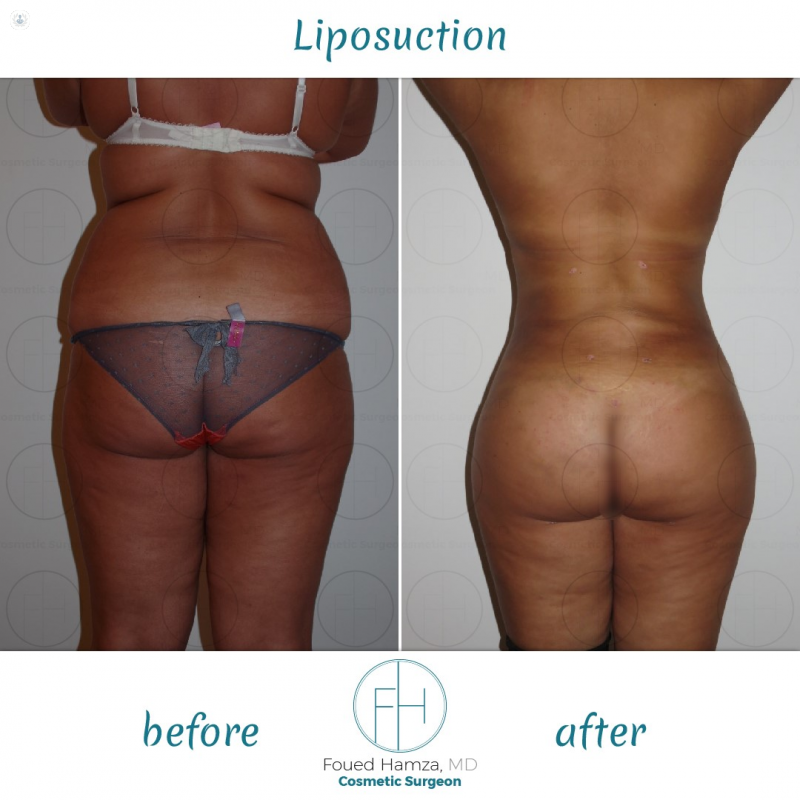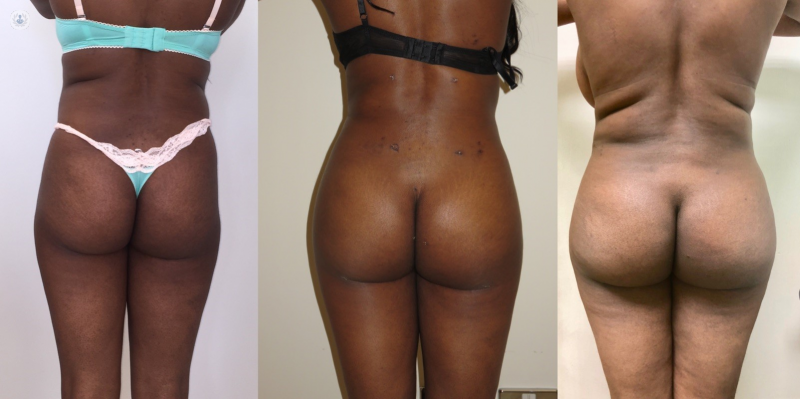
Body contouring is the act of removing fat and sculpting the body to achieve a patient’s desired shape. Mr Foued Hamza is a cosmetic surgeon who has helped many patients with non-invasive body contouring techniques and here, he shares his invaluable knowledge with you.
Is body contouring like weight loss?
Body contouring is not a weight loss solution, but it often involves the removal of fat (or readjustment of where it lies) and tightening of the skin. If a patient is overweight, we advise them to lose weight before.
What body contouring treatments are there?
Various body contouring treatments exist and the best one for you depends on your desired shape. To group them into categories, there is:
- Liposuction to remove fat (not to lose weight)
- Liposuction to remove fat and move it into a different area of the body
- Non-surgical body contouring using fillers
- Non-surgical body contouring using external devices

What happens during non-invasive contouring methods?
Usually, non-invasive contouring methods are used on patients who are mostly happy with their shape but want to enhance it. Some may opt for liposuction, which is very minimally invasive, but in the case of non-invasive methods, this can be achieved with fillers and external devices.
Fillers are particularly common in those who are looking for less invasive procedures. In treatments involving fillers, the fillers are added to a part of the body (such as the buttocks or hips) to contour and add to an already nice shape.
External devices are placed over the skin. They can be helpful and pose extremely little to no risk of harm, but they are only used for mild cases. Several sessions are required to achieve results and the results aren’t quite guaranteed compared to fillers or invasive procedures. Two of the most well-known being CoolSculpting ® and BODYTITE®. Others that might be used are radiofrequency, high-intensity focused ultrasound and laser therapy.
Is surgery a more effective form of body contouring? Why?
Surgery is more aggressive and therefore it does offer more extreme results. However, many types of surgery, such as a tummy tuck, are specific to certain areas and less about contouring the whole body.
Invasive surgery isn’t always required to achieve a body transformation or adjustment. For example, many patients opt for liposuction instead. This is the most common non-surgical procedure, it’s minimally invasive and it can offer ideal results that consider the whole body.
What if I gain weight?
After surgery, if the patient has a poor diet and gains a large amount of weight, they may put on fat in areas that they don’t want to. That’s why we recommend liposuction. The benefit of liposuction is that removed fat can never come back, so the results will last a lifetime. That’s why we recommend they do complete body contouring. If the patient does body contouring instead of surgery, they can keep their new shape forever, even if they gain weight.

Tell us about your body sculpting approach that you use to achieve natural results for patients?
Despite my body-sculpting techniques being widely practised, my approach is unique. Whenever a patient would like to undergo treatment, I advise them to diet beforehand. Once they achieve this, myself and the patient can discuss where to add the fat and then I do the sculpting.
I believe in adjusting the whole body. If someone wants a tummy tuck, I need to assess the whole body. If we take fat from the waist, I sometimes need to add it to the hips. In short, I always look at the body as a whole.
View Mr Hamza’s profile to see more content about plastic surgery to book an appointment

Recent Comments